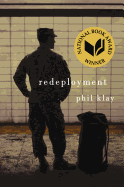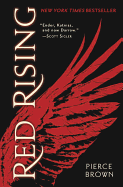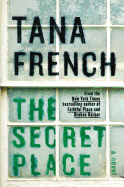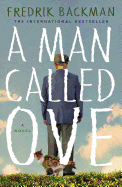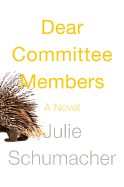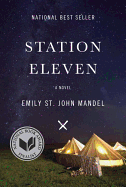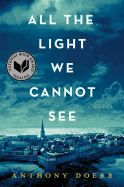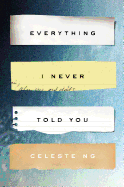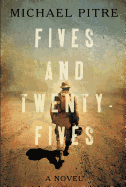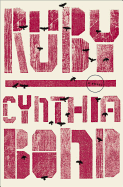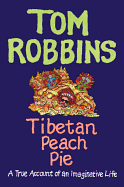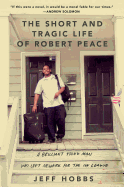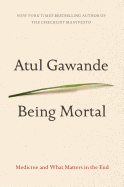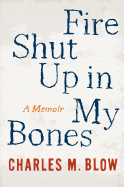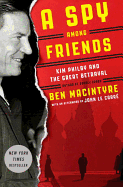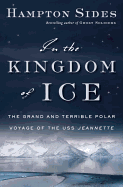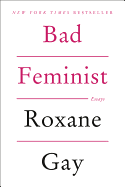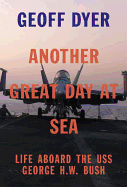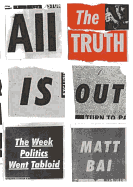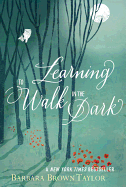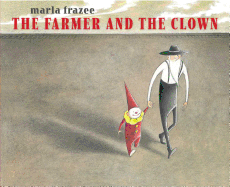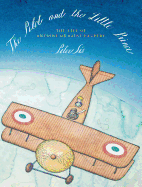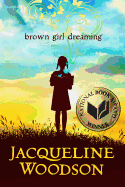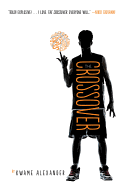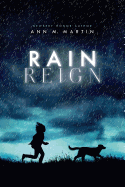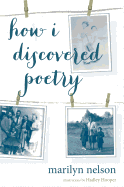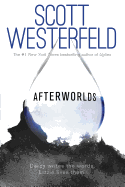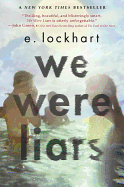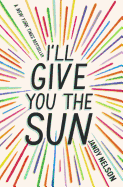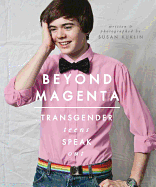Our Best Books of 2014
Last year, when brainstorming our Best Books list, we pared down our initial list of favorites to 87; this year we're more efficient: we managed to end up with just 81 titles--still way too many. There's just too much love in our hearts to limit ourselves, so, once again, we're cheating by adding just a few more to our 30 Best Books of 2014--consider them honorable mentions.
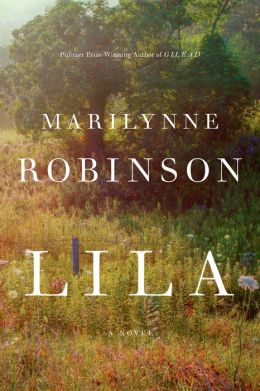 Marilynne Robinson has gathered encomia galore, and so well-deserved, especially for Lila. We called it a "heartbreaking and glorious addition to her series; Robinson... continues to teach readers what it means to come home." Some homes are alien: in The Book of Strange New Things, Michel Faber's protagonist preaches the gospel on a distant planet, in an "unsettling, thought-provoking exploration of faith, love and redemption." In The Bees, Laline Paull has written an enthralling story exploring the intricate and brutal social order of the beehive, with a heroine named Flora 717, a low-caste hive sanitation worker. In these three wonderful novels, the value that surfaces most powerfully is love.
Marilynne Robinson has gathered encomia galore, and so well-deserved, especially for Lila. We called it a "heartbreaking and glorious addition to her series; Robinson... continues to teach readers what it means to come home." Some homes are alien: in The Book of Strange New Things, Michel Faber's protagonist preaches the gospel on a distant planet, in an "unsettling, thought-provoking exploration of faith, love and redemption." In The Bees, Laline Paull has written an enthralling story exploring the intricate and brutal social order of the beehive, with a heroine named Flora 717, a low-caste hive sanitation worker. In these three wonderful novels, the value that surfaces most powerfully is love.
No Man's Land: Preparing for War and Peace in Post-9/11 America by Elizabeth D. Samet is a sensitive, thoughtful look at the education of the country's future military leaders by a savvy, invested West Point English professor. Music is well served by Rick Bragg's Jerry Lee Lewis: His Own Story. We said if you read only one history of rock and roll, this is the one.
Preparing the Ghost: An Essay Concerning the Giant Squid and Its First Photographer by Matthew Gavin Frank is an eccentric, tangent-filled literary analysis of the first photograph of a giant squid--"like talking to a charming man at a party full of drunk academics." The next time you're in that situation, Dataclysm: Who We Are (When We Think No One's Looking) could be a conversation starter--a fascinating guide to what Big Data tells us about human nature. --Marilyn Dahl, editor, Shelf Awareness for Readers
Book Review
Fiction
Redeployment
by Phil Klay
Recent American wars have made the term "redeployment" a household word. Soldiers are moved around, withdrawn and redistributed in one seemingly endless war. Phil Klay's stunningly fine debut collection of short stories, Redeployment, uses the word "war" both as military language and as the world his characters inhabit. These 18 often brutal stories are told by varied narrators, and the tone throughout is understated, quiet, reserved--in counterbalance to the horrific events being described.
Klay, a U.S. Marine Corps veteran, focuses on the men who have to enforce government policies, the decisions of others. The final, powerful story, "Ten Klicks South," is about dead soldiers coming home. Personal effects are gathered, wedding rings removed, bodies prepared for transport. "And as it was unloaded off the bird, the Marines would have stood silent and still, just as we had in Fallujah.... And they would have stood silent and still in Kuwait. And they would have stood silent and still in Germany, and silent and still at Dover Air Base.... Marines and sailors and soldiers and airmen would have stood at attention as it traveled to the family of the fallen, where the silence, the stillness, would end."
Redeployment won the 2014 National Book Award for Fiction. Truly well-deserved. --Tom Lavoie, former publisher
Penguin Press,
$26.95,
hardcover, 9781594204999
Red Rising
by Pierce Brown
Any contemporary dystopian science fiction novel will inevitably draw comparisons to The Hunger Games or Divergent, but Pierce Brown's Red Rising fully deserves to stand beside them. It's a bone-crunching story of revenge, full of clever plot twists and characters worth rooting for.
Darrow is a young miner on a terraformed Mars, where life as a miner is brutal and short. The mines are worked by the Reds, who are ruled by the Golds--genetically and socially engineered brutes who kill those beneath them for the slightest infraction. Darrow and and his wife, Eo, end up on the wrong side of this equation with tragic results, setting off a labyrinthine journey of revenge.
Brown captures the emotions of lost love and the yearning for something greater, and when Darrow is given the chance for retribution through genetic manipulation, his transformation into a Gold is harrowing. His constant struggle for survival--during which he seems in as much danger of losing pieces of his soul as his life--is reminiscent of the Battle School in Ender's Game. Brown's vision of a criminally stratified future society offers a commentary on our contemporary excesses of materialism and youth worship and delivers everything it promises, in spades. A fantastic start to a trilogy. --Donald Powell, freelance writer
Del Rey,
$25,
hardcover, 9780345539786
The Secret Place
by Tana French
Since his turn as Frank Mackey's sidekick in The Faithful Place, Detective Stephen Moran has been biding his time working in Cold Cases, hoping to get into the elite Dublin Murder Squad. He gets a lucky break in the form of Mackey's daughter, Holly, who attends the prestigious girls' boarding school St. Kilda's. She shows up at the station one day with a card with the words "I know who killed him" glued across a picture of Chris Harper, a popular boy who was found dead on the campus of St. Kilda's months ago.
Moran talks his way into the investigation alongside Detective Antoinette Conway; Moran's likability and optimism make him the perfect good cop to Conway's cynical, bullish bad cop. As they face down a tight-lipped headmistress, a bevy of teen girls and a ticking clock before they're shoved off the school grounds, Moran and Conway must learn to trust each other if they're going to catch a killer.
Tana French expertly portrays the raw and shaky world of adolescence. With carefully crafted characters and motives, she not only makes a boarding school murder seem plausible, she makes the reader wonder how teenagers could ever live in such close quarters without doing each other grievous bodily harm. --Jaclyn Fulwood, blogger at Infinite Reads
Viking,
$27.95,
hardcover, 9780670026326
A Man Called Ove
by Fredrik Backman
In this quirky, heartwarming novel, Fredrik Backman brings us Ove, an elderly Swedish curmudgeon who views the world in black and white, right and wrong. He recently lost his wife, Sonja, to cancer and his job to downsizing. Ove lived for both and feels suddenly irrelevant, so he's resolved to commit suicide. Fate has other plans. An overweight IT geek, a spirited family new to the neighborhood, a young gay man, an old friend/archenemy and even a stray cat turn to Ove for help, interrupting his meticulous strategies to rejoin his wife in the afterlife.
Backman juxtaposes the seriousness of tragedy with the hilarity of life's unpredictability in a respectful and endearing recitation of Ove's experiences. The chapters alternate between the past and the present; as Ove tries repeatedly to leave this world, readers learn more about his beautiful love story with Sonja.
A Man Called Ove is exquisite. Lyrical language is the confetti thrown liberally throughout this celebration-of-life story, adding sparkle and color to an already spectacular party. Backman's characters feel so authentic that readers will likely find analogues living in their own neighborhoods.
This astounding, colorful debut inspires both laughter and tears: part love story, part crusade, all wonderful. --Jen Forbus of Jen's Book Thoughts
Atria,
$25,
hardcover, 9781476738017
Dear Committee Members
by Julie Schumacher
Julie Schumacher (novelist and University of Minnesota English department faculty member) has crafted Dear Committee Members as a series of letters of recommendation from curmudgeonly Jason Fitger, tenured professor of Creative Writing and English at fictional Payne University. Amid the defunding of his department, Fitger's modest academic life is one of divorce, disappointment and disgruntlement. But he takes seriously his responsibility to support his students and agrees to all requests to send recommendations, no matter how far-fetched the employment opportunity. His often rambling missives not only display his caustic distaste for university administrative bureaucracy, but cumulatively paint a picture of a once-optimistic graduate student who has lost his wife, his literary agent and his self-respect.
Gradually, Schumacher peels aside Fitger's tough façade to show a man who still believes in the power of literature and the role of teaching. He is perhaps most genuine in one letter where he describes his student as "not yet a candle ready to illuminate anyone else's darkness, but he understands that darkness exists, and he does not turn away." Can we ask anything more than this from a college education? In this clever send-up of academic logrolling, Julie Schumacher has written one of the funniest (and most poignant) books of the year. --Bruce Jacobs, founding partner, Watermark Books & Cafe, Wichita, Kan.
Doubleday,
$22.95,
hardcover, 9780385538138
Station Eleven
by Emily St. John Mandel
For Kirsten Raymonde, Shakespeare came before and after the end of the world. At eight years old, she played an hallucination in a stage production of King Lear starring middle-aged film star Arthur Leander. As an adult, she portrays Cordelia, Titania and others for the Traveling Symphony, an orchestra and theater company touring the wasteland of the former United States under the banner of a Star Trek: Voyager quotation: "Survival is insufficient." Twenty years after a virus wiped out most of the human population, many comforts are relics of the past: electricity, medicine, digital technology. The troupe offers cultural enrichment in exchange for food and shelter in loosely governed towns. In one such place, the company meets a dangerous cult leader known as the Prophet and his rabidly loyal followers. When the performers inadvertently attract the Prophet's wrath, they struggle to escape. Their intended destination, an airport rumored to hold a Museum of Civilization, may also hold the key to the Prophet's true identity--and link directly back to Arthur Leander, whose rise to fame, fortune and regret is told in interludes between pieces of the Symphony's story.
Incisive, suspenseful and peopled with meticulously detailed characters, this stunner will leave readers prickling with dread but also breathless with wonder. --Jaclyn Fulwood, blogger at Infinite Reads
Knopf,
$24.95,
hardcover, 9780385353304
All the Light We Cannot See
by Anthony Doerr
Anthony Doerr's second novel (About Grace) will likely draw comparisons with Markus Zusak's The Book Thief. It's set during World War II and features a girl who stands firm in the face of evil, thanks to the power of literature and learning. All the Light We Cannot See, though, is its own creature: an intricate miracle of invention, narrative verve and deep research--but above all a miracle of humanity. Without a doubt, one of the best novels of the year, if not the decade.
It's August 1944 in the last Nazi stronghold in Brittany. Marie-Laure LeBlanc and Private Werner Pfennig are both trapped in Saint-Malo as the Allies prepare to destroy it. Marie-Laure--a blind 16-year-old, unable to read the leaflet urging residents to depart--is preoccupied with keeping her great-uncle's house safe from intruders. Werner, an 18-year-old German soldier, is holed up only five streets away, desperate to find the source of one particular radio transmission. This desire, we learn, has nothing to do with national allegiance and perhaps everything to do with Marie-Laure. These two exceptional innocents share a strange, star-crossed history.
Doerr harnesses what only the finest artists can: the power to create, reveal and augment experience in all its horror and wonder, heartbreak and rapture. --Kerry Fried
Scribner,
$27,
hardcover, 9781476746586
Everything I Never Told You
by Celeste Ng
In a quietly powerful debut, Celeste Ng pulls readers into an American family whose lives are shaped by the smothered dreams and fears of inadequacy lurking in their hearts. When their carefully constructed illusions are fractured, the strength of willing vulnerability may be their only way back to life and to each other.
"Lydia is dead. But they don't know this yet." One morning in 1977, 16-year-old Lydia Lee doesn't come to the breakfast table. Although the police assure the Lee family that most missing teen girls come home on their own, they find Lydia's body in the nearby lake two days later. They suspect suicide, but each member of the family has a different theory. Her father, James, believes Lydia killed herself because she had no friends. Her mother, Marilyn, is sure someone murdered her favorite child. Her brother, Nathan, suspects their neighbor, the school bad boy, of complicity. Only her little sister, quiet, insightful Hannah, knows that none of their theories can be correct as long they continue to see Lydia's motivations and fears as identical to their own.
Readers will ache as the characters break away from each other, but Ng's gentle voice keeps alive the hope that lessons may be learned, rifts mended. Ultimately filled with the promise of renewal, this delicately crafted drama destroys, only to heal. --Jaclyn Fulwood, blogger at Infinite Reads
The Penguin Press,
$26.95,
hardcover, 9781594205712
Fives and Twenty-Fives
by Michael Pitre
Michael Pitre's debut novel, Fives and Twenty-Fives, follows three men from a road repair platoon in Iraq, alternating among their first-person voices, switching between the present--when each man has either returned home or tried to create a new one--and their far more vivid past in the war zone.
Lieutenant Donovan is the platoon's leader, "A real southern college boy.... Like he was on his way to an outdoor jam band festival one day, took a wrong turn, and somehow ended up in the Marines." Corpsman Lester "Doc" Pleasant, from the wrong side of the tracks, discovers a gift for medical work. The platoon's losses hit him hard. Their "terp," or interpreter, is a Baghdadi university student code-named Dodge ("a dependable car"), who carries a copy of The Adventures of Huckleberry Finn in his back pocket.
The quiet pathos of war, its aftermath and the inability of a tone-deaf society to relate to those affected by it are rendered with poignancy and stark honesty. The characters are not perfect, but demand our compassion for their very reality. We are lucky to have such a fine voice as Michael Pitre's to tell this story in one of the best novels to come out of the Iraq war. --Julia Jenkins, librarian and blogger at pagesofjulia
Bloomsbury,
$27,
hardcover, 9781620407547
Ruby
by Cynthia Bond
Cynthia Bond's lush, poetic debut novel, Ruby, explores memory, racism, community and the resilience of the human spirit--no small task--by creating a sort of dream in which human kindness and cruelty are shown as they are: inextricable.
The once beautiful--and literally haunted--Ruby Bell, who fled her Texas town and her demons in the 1950s, returned some years later, her tenuous grasp on sanity slipping away soon after. She became the locus for all the town's fear and shame. For all, that is, but Ephram Jennings.
Ephram remembers her as the girl he has never stopped loving, and asks his sister to make one of her legendary "white lay angel" cakes; then, dressed in his Sunday best, he tries to carry it through the woods to Ruby's house, a place of nightmare and squalor. It is a hero's journey, fraught with danger and trial. He falls and tears his clothes, fends off questions from passersby, is harassed by the law. With each obstacle, we learn a little more about the town, Ruby and Ephram's connection to her.
Cynthia Bond renders darkness and terror, and love and kindness, with exceptional grace and insight. This is an unusual, rare and beautiful novel that is meant to be experienced as much as read. --Debra Ginsberg, author
Hogarth,
$25,
hardcover, 9780804139090
Nonfiction
Tibetan Peach Pie: A True Account of an Imaginative Life
by Tom Robbins
Tom Robbins, best known for writing flamboyantly imaginative novels with half-hilarious, half-metaphysical leanings, dishes out a juicy-parts version of his full and unusual life in this clever, funny and subversive collection of autobiographical essays. In the preface, Robbins remarks, "My editor claims some of this stuff is so nuts even I couldn't have made it up," and readers will agree as they join Robbins for a stroll down a version of Memory Lane populated by circus performers, bohemians, the occasional celebrity and a variety of interesting women.
Robbins begins with his childhood in Appalachian North Carolina during the Great Depression. His precocious knack for trouble earned him the nickname Tommy Rotten. As an adult, Robbins has maintained his habit of telling convention to go do rude things to itself. He defies tradition yet again by throwing the usual linear autobiography format out the window, jumping instead from story to story. Perhaps the only aspect more impressive than Robbins's ability to imbue a lifetime of interesting anecdotes with an additional layer of introspection is his trademark style, as much in evidence here as in any of his fiction--earthy and conversational yet simultaneously intellectual. Fans and newcomers alike will guffaw and marvel at this most extraordinary life. --Jaclyn Fulwood, blogger at Infinite Reads
Ecco Press,
$27.99,
hardcover, 9780062267405
The Short and Tragic Life of Robert Peace
by Jeff Hobbs
Robert Peace was born in 1980 in a Newark, N.J., ghetto. His parents had high hopes for him, pushing him to receive the best education possible, though his father ultimately ended up in jail and his mother struggled to make ends meet. Still, their efforts paid off: despite growing up in a city riddled with drugs and gangs, Peace succeeded in high school and earned a place at Yale, where he graduated with distinction with degrees in molecular biochemistry and biophysics. At age 30, he was shot to death in a marijuana den in the basement of a Newark home. Jeff Hobbs (The Tourists), Peace's college roommate, asks the obvious questions in The Short and Tragic Life of Robert Peace: How could this happen, and why?
A heartbreaking biography that shines a light on poverty in the U.S., Hobbs's account of his friend's life and death highlights how our pasts shape us, how our search for a place of safety and belonging can prove to be dangerous. Peace's life was indeed short and tragic, but Hobbs aims to guarantee that it will not go unmarked; this affecting story is a tribute to the many people that Peace touched while he lived, and a lens through which we can better understand poverty and opportunity after his death. --Kerry McHugh, blogger at Entomology of a Bookworm
Scribner,
$27,
hardcover, 9781476731902
Being Mortal: Medicine and What Matters in the End
by Atul Gawande
In Being Mortal, Boston surgeon Atul Gawande displays the precision of his surgical craft and the compassion of a humanist in a frank and often emotionally powerful examination of the burden of mortality.
Gawande aims to help both doctors and patients "figure out how to face mortality and preserve the fiber of a meaningful life." It troubles him that medical training and rapidly improving technologies often frustrate those goals, resulting in care that "fails the people it is supposed to help."
Being Mortal takes an intensely personal turn when Gawande describes in painstaking detail the final illness and death of his father from a spinal-cord tumor. In a narrative that often attains the force and beauty of a novel, he explains the myriad choices that helped the family shape his father's path, not to a "good death," but instead to the end of a well-lived life, as in each of his father's last days he "found moments worth living for."
Only a precious few books have the power to open our eyes while they move us to tears. Atul Gawande has produced such a work. One hopes it is the spark that ignites some revolutionary changes in a field of medicine that ultimately touches each of us. --Harvey Freedenberg, attorney and freelance reviewer
Metropolitan/Holt,
$26,
hardcover, 9780805095159
Fire Shut Up in My Bones
by Charles M. Blow
In a memoir that juxtaposes New York Times columnist Charles M. Blow's usual elegant and eloquent prose with the brutal truths of his early years, issues of race, poverty, sexuality and belonging are given a human face: his own.
Blow opens--as a college student--with the night he decided to kill his older cousin Chester for abusing him as a young boy. This agonized young man hovers at the edge of the reader's consciousness as Blow backs up to his first memory and walks us along the path that led to that desperate night.
Blow uses the details of his life to give shape and reality to what many of us understand only in the abstract. If the adage that you can know another person only by walking a mile in their shoes is true, then Blow doesn't just hand over his shoes, he ties the laces and nudges us in the right direction. He recounts his memories with grace and clarity, even laughter, speaking to the human heart in each of us. No reader will come away unaffected by this stellar memoir--a drop of hope in an ocean of sorrows. --Jaclyn Fulwood, blogger at Infinite Reads
Houghton Mifflin Harcourt,
$27,
hardcover, 9780544228047
A Spy Among Friends: Kim Philby and the Great Betrayal
by Ben Macintyre
Ben Macintyre (Double Cross) offers a fresh look at master double agent Kim Philby, examining his duplicity against the backdrop of his closest friendships with fellow operatives who loved but never truly knew him. Charming, clever and almost universally liked, Philby rose through the ranks of British intelligence to become head of MI6's office in Washington, D.C. Along the way, he made many close friends in the intelligence community, including CIA counterintelligence head James Jesus Angleton, but none was so close or staunchly supportive of Philby as fellow MI6 agent Nicholas Elliott. Brought together by class and clubs, baptized together by fire and gin, the two were as close as brothers, Elliott thought. He never suspected his friend Philby was passing every secret Elliott told him to the U.S.S.R.
Macintyre shines a light not into what happened, but how it could be allowed to happen. Although Philby himself insisted his duplicity stemmed solely from a lifelong devotion to Communist ideals, Macintyre paints a different picture, that of a clever sociopath who betrayed hundreds of people to their deaths with no remorse. And as Philby's career progresses, his ability to lead a double life is aided by ties of class and privilege. Any suspense-loving student of human nature will be shocked and thrilled by this true narrative of deceit. --Jaclyn Fulwood, blogger at Infinite Reads
Crown,
$27,
hardcover, 9780804136631
In the Kingdom of Ice: The Grand and Terrible Polar Voyage of the USS Jeannette
by Hampton Sides
Hampton Sides (Ghost Soldiers) bolsters our ongoing fascination with heroic tales of voyages to the polar caps with the suspenseful, chilling story of U.S. Navy Commander George W. DeLong and a little-known 19th-century Arctic expedition. Scientists conjectured that the Arctic Ocean was warm, the open water tepid and easy to sail. Arctic expert August Petermann believed the best route to the Arctic was the Bering Sea; DeLong, bankrolled by newspaper tycoon James Gordon Bennett Jr., agreed. On July 8, 1879, the USS Jeannette--outfitted with a steam engine, desalination apparatus, three years of provisions and cases of Budweiser--set sail from San Francisco with a crew of 30.
In August, the ship stopped in Alaska to take on more coal, then sailed on. In early September, an American whaling fleet spotted the Jeannette near Herald Island, trailing a plume of black smoke. It was the last sighting of the ship. That month, ice 15 feet thick and massive floes battered the Jeannette, eventually trapping it. On November 13, the sun set and the crew was "plunged in nearly complete darkness." In January 1881, the trapped ship began to leak. Even though the outcome is known, adventure-loving readers will find much to enjoy in Sides's suspenseful telling of this tragic and heroic tale. --Tom Lavoie, former publisher
Doubleday,
$28.95,
hardcover, 9780385535373
Bad Feminist: Essays
by Roxane Gay
Don't let the title fool you. Roxane Gay--cultural critic, blogger and author--isn't a bad feminist. She's outspoken, persuasive and incisive, and in this essay collection, she proves that feminism can exist among a variety of apparent contradictions, be they loving the color pink or dancing to a filthy rap song.
Her compilation is a perfect entrée into the world of feminism for those whose politics or predilections might make them wary of the term. Gay writes fearlessly, calling foul on anyone whose superficial concept of a feminist entails stereotypes. She empowers her readers to be any kind of feminist they choose, even a "bad" one, confessing her own uneasy ardor for the ultra-girly Sweet Valley High books and melodramatic reality TV. Unlike many cultural critics, Gay doesn't pretend to have all the answers; her greatest strength here is her insistence on raising questions, even those she can't resolve in the course of an essay. She tackles disparate, sometimes controversial subjects like Trayvon Martin's killing or the racial implications of the film Django Unchained with empathy and openness, interweaving her own experiences with larger cultural observations.
The book is powerful, and its winsomeness is due entirely to Gay's fearless, inclusive and accessible prose. --Linnie Greene, freelance writer
Harper Perennial,
$15.99,
paperback, 9780062282712
Another Great Day at Sea: Life Aboard the USS George H.W. Bush
by Geoff Dyer
Geoff Dyer (Jeff in Venice) writes about anything that catches his fancy and does it really well. In addition to novels, he's written essays and nonfiction works on such diverse topics as yoga, jazz, World War I, John Berger and D.H. Lawrence. Here, he tackles an aircraft carrier, the USS George H.W. Bush. Each day is Another Great Day at Sea for Dyer, as he spends a few intense weeks on a massive metal floating island with seemingly endless walkways, hatches and doorways.
He describes the flight deck as a "world apart from the rest of the carrier." Readers will feel the tension when he writes about the arresting wires that grab F-18 planes (66 of them) as they come roaring in. Carrier population: 5,000 (he tells us about two brothers serving on board in different sections who didn't set eyes on each other for six months). Dyer ably conveys his awe at the logistics of feeding such a large crew. The smell--"like a garage with fifty thousand cars in it." And then there's the cleaning; it goes on day after day, everywhere, especially in ordnance.
Dyer goes on quite a trip--quirky and exhilarating--and will keep readers intrigued the whole way. --Tom Lavoie, former publisher
Pantheon,
$24.95,
hardcover, 9780307911582
All the Truth Is Out: The Week Politics Went Tabloid
by Matt Bai
In 1987, Senator Gary Hart was favored to win the 1988 presidential election. Then an unprecedented journalistic earthquake shattered his bid--and forever changed the landscape of American politics. Matt Bai (The Argument) examines Hart's campaign and the world of journalism to illuminate why this promising presidential hopeful ended up disgraced unlike any before him and any since.
In All the Truth Is Out, Bai details the impact Nixon and Watergate had on the news world. Journalists vowed never to be embarrassed by a politician's deceit to that degree again, and were tantalized by the celebrity Woodward and Bernstein achieved by breaking the story. When Tom Fiedler of the Miami Herald received an anonymous tip Hart was having an illicit affair, he set out to uncover a scandal.
Bai lays out a time line that contradicts the widely held course of events and questions the rationale reporters used to justify their unprecedented behavior: "The cardinal objective of all political journalism had shifted, from a focus on agendas to a focus on narrow notions of character, from illuminating worldviews to exposing falsehoods." This haunting new perspective will leave readers wondering just how much would be different today if Hart's alleged infidelity hadn't made it into the papers. --Jen Forbus of Jen's Book Thoughts
Knopf,
$26.95,
hardcover, 9780307273383
Learning to Walk in the Dark
by Barbara Brown Taylor
Conventional wisdom associates light with good, while darkness represents evil and danger. Theologian Barbara Brown Taylor believes otherwise. In Learning to Walk in the Dark, she compellingly makes the case for why darkness is as necessary to our well-being as light--to have one without the other is to live only half a life.
When Taylor told people she was writing a book about darkness, reactions were uniformly negative, but Taylor continued exploring physical, emotional and spiritual darkness, and reveals the beauty and riches to be found there, sharing the life-shaping lessons she would never have learned in the light.
Taylor has filled Learning to Walk in the Dark with fascinating facts and anecdotes, from the origin of the word "night"--which comes from Greek myth--to insights on insomniacs like Mark Twain and Van Gogh, who often did their best work during the darkest hours, to why she learned as much about human nature working as a waitress at an underground bar as she did writing papers for seminary classes. Ultimately, Taylor challenges us to think differently about a subject we've largely shied away from, with an impassioned plea to embrace darkness, both metaphorical and literal. --Shannon McKenna Schmidt, contributing writer, Shelf Awareness
HarperOne,
$24.99,
hardcover, 9780062024350
Children's & Young Adult
The Farmer and the Clown
by Marla Frazee
Marla Frazee (All the World) begins her wordless masterpiece at sunrise, as a farmer sets out to work. The furrow on his brow echoes the furrows of his field; his long white beard comes to a triangular point. The muted palette plays up the brown of the earth, the gold of the hay, the stark-white clouds. He stands, pitchfork in hand, and sees a circus train, trailing a spray of colors on the nearby tracks. Something falls from the train, and Frazee charts the farmer's approach, zeroing in on the clown-child left behind.
The farmer takes him by the hand--the child's red upward-pointing clown hat the perfect yin to the yang of the man's downward-pointing beard. He gives up his bed, and makes funny faces to cheer the little fellow. The next day, as they set out for a picnic, the train returns, and readers know they must part. But what a moving farewell: the child showers the farmer with unfettered affection. As the train pulls away, readers see that the farmer has given the child a memento. And the farmer has gained something, too. Frazee takes us on an emotional journey that neither farmer, nor clown--nor reader--will ever forget. --Jennifer M. Brown, children's editor, Shelf Awareness
Beach Lane/S&S,
$17.99,
hardcover, 32p., ages 4-8, 9781442497443
The Pilot and the Little Prince: The Life of Antoine de Saint-Exupéry
by Peter Sís
Like the creator of The Little Prince, Peter Sís (The Wall) fled the occupation of his native land and brings an emotional as well as historical context to his subject.
Sís melds the realistic and the fantastical, beginning with an image of a golden-haired baby floating above a map of his birthplace: "Long ago in France, at the turn of the last century, a little boy was born to be an adventurer." He populates the pages with seemingly far-out inventions of science fiction, then connects the fantastical with reality. Twelve-year-old Antoine flew in a plane as a passenger and knew he wanted to be a pilot; the book doubles as a subtle history of aviation. Sís achieves greatness in the way he connects Antoine's experiences--flying over vast stretches of unpopulated land, a crash landing in the Libyan desert where he meets a fox--back to The Little Prince. A wordless image of the ocean packs an emotional wallop after the loss of Saint-Exupéry's dear friend and country.
This astonishing picture book gives young readers a firm foundation for entering The Little Prince and will lead older readers back to it with augmented appreciation. --Jennifer M. Brown, children's editor, Shelf Awareness
Frances Foster/FSG,
$18.99,
hardcover, 48p., ages 7-10, 9780374380694
Brown Girl Dreaming
by Jacqueline Woodson
Jacqueline Woodson's (Locomotion; Feathers) inspired memoir--winner of the 2014 National Book Award for Young People's Literature--is told entirely in verse, bringing readers into her family's most intimate moments.
Born in Columbus, Ohio, in 1963, Jacqueline and her siblings move with their mother to her girlhood home in Greenville, S.C., after her parents separate. Greenville is a place filled with wonder, faith, family and laughter. As their mother looks for a new home for them in New York City, Jacqueline and her siblings find abundant love and comfort with their grandparents. Woodson delicately weaves into her family's stories her own path to becoming a writer, alongside historical events that simmer alternately in the background and foreground involving the Civil Rights movement, the Vietnam War and the Black Panthers. "This is the way brown people have to fight," her grandfather tells her during the Greenville sit-ins. "You can't just put your fist up. You have to insist/ on something/ gently. Walk toward a thing/ slowly./ But be ready to die,/ my grandfather says,/ for what is right."
Woodson offers readers an accessible, first-hand look at African American childhood during decades of tremendous turmoil and change. Her observations, through the eyes of a child trying to make sense of her world, allow readers, too, to experience her childhood-defining moments. --Kyla Paterno
Nancy Paulsen/Penguin,
$16.99,
hardcover, 336p., ages 10-up, 9780399252518
The Crossover
by Kwame Alexander
Josh Bell, 12-year-old poet and ace basketball player, narrates this gripping novel in stanzas, and proves he's both scholar and athlete, with his sights set on Duke.
Josh's identical twin, Jordan ("JB"), is also a gifted ball player. Josh is "an inch taller, with dreads to my neck," while JB gets his head shaved once a month. JB is the jumper; Josh is the slasher, and master of on-court moves, including the crossover. School comes harder to JB, but he's always up for a wager. The twins bet that if JB scores the last basket of the game, he can cut off Josh's dreads. Josh agrees to let him cut just one, but JB inadvertently gets his way. Tension smolders. When JB gets interested in a "pulchritudinous" new girl, Josh acts as his brother's Cyrano de Bergerac.
Alexander carefully charts Josh's anger building to the boiling point. Josh lets loose on the basketball court, nearly breaking his brother's nose. Despite the damage to the brothers' relationship, the novel brims with evidence of the family's profound respect for one another. Full-bodied characters and spellbinding wordplay will keep readers riveted to find out if the brothers can mend the breach in their once iron-clad bond. --Jennifer M. Brown, children's editor, Shelf Awareness
Houghton Mifflin Harcourt,
$16.99,
hardcover, 240p., ages 9-12, 9780544107717
Rain Reign
by Ann M. Martin
This bittersweet tale, recounted by 11-year-old Rose Howard in a purposeful storyteller's style, reveals a girl trying her best to keep it together.
Rose needs unbroken rules, prime numbers and homonyms to get through her days. And, since last year, she also needs the yellow-furred dog she named Rain (homonyms: rein and reign). To her father's frustration, Rose is on the high-functioning autism spectrum. He doesn't understand why she can't stop talking incessantly about homonyms, stop shouting sequences of prime numbers, stop asking him so many questions. So when he comes home quiet or his eyes get "black and hard," Rose and Rain both know to keep their distance. Some of Rose's challenges are specific to her autism, but her desire to fit in is universal. Underneath her obsessions and outbursts she is smart, sensitive and eager to please. The nuanced portrayal of her solid, loving relationship with her Uncle Weldon is sure to appeal to readers wishing for one of their own.
When a devastating storm rips through Rose's small community, the holes in her life become that much more jagged. Martin's clear, true, immediate writing places readers dead-center in the emotional maelstrom with Rose, who is much more than her father sees and braver than she knows. --Karin Snelson, children's book editor and reviewer
Feiwel & Friends/Macmillan,
$16.99,
hardcover, 240p., ages 9-12, 9780312643003
How I Discovered Poetry
by Marilyn Nelson, illus. by Hadley Hooper
Marilyn Nelson (A Wreath for Emmett Till) calls this collection of 50 poems "a personal memoir, a 'portrait of the artist as a young American Negro Girl.' " As in James Joyce's A Portrait of the Artist as a Young Man, the hero is a stranger in her own land, seeing its beauty and its cruelty.
Nelson harnesses her observations into unrhymed sonnets in iambic pentameter and unpacks their power one line at a time. The poems cover the evolution of a child's thoughts from age 4 to 14, from 1950 to 1959, in states stretching from California to Maine. They chronicle the becoming of a poet and the maturation of a nation. Like Frost and Dickinson, Nelson moves from the specific to the abstract and back again. On the eve of her best friend, Helene, moving away, she writes, "Tomorrow I'll feel lonely as Sputnik," only to have Helene put their situation in a larger context in the last lines: "Helene talks about the kids in Little Rock:/ how brave they are, how lonely they must feel."
The seeds planted in the early poems flower by book's end, when a teenage Marilyn begins to own the power of what a calling as a writer might mean. --Jennifer M. Brown, children's editor, Shelf Awareness
Dial/Penguin,
$17.99,
hardcover, 112p., ages 12-up, 9780803733046
Afterworlds
by Scott Westerfeld
In an extraordinary feat, Scott Westerfeld (Uglies; Leviathan) devises a complete novel within a novel: his tale about 18-year-old Darcy Patel, who's publishing her first YA novel, as well as the paranormal romance--in its entirety--that Darcy is writing, called Afterworlds. They alternate chapter by chapter, and both will grip readers.
Darcy's story unfolds in the third person from her point of view, and opens with her e-mail to a literary agency, resulting in a two-book deal "for an astonishing amount of money." Readers first meet her heroine, narrator 18-year-old Lizzie Scofield, when she survives a terrorist attack in an airport and emerges with the ability to travel between the real world and what comes after; they learn along with her the rules of this fictional world--the importance of names, what keeps ghosts "alive" and what destroys them--and watch Lizzie's developing romance with "a smoldering Vedic psychopomp."
Westerfeld masterfully sets up the parallels between Darcy's and Lizzie's stories in such a way that a rippling in any subplot affects them all. He posits the idea that the characters one creates have full and thriving lives, and the author has a moral responsibility to be true to them. --Jennifer M. Brown, children's editor, Shelf Awareness
Simon Pulse,
$19.99,
hardcover, 608p., ages 14-up, 9781481422345
We Were Liars
by E. Lockhart
E. Lockhart's (The Disreputable History of Frankie Landau-Banks) spectacular plotting and character delineation build to an ending that will hit readers like a tidal wave.
The author examines where one has come from, who one wishes to be, and where these two collide. As Granddad explains, "We Sinclairs are a grand, old family.... Our traditions and values form the bedrock on which future generations stand." Granddad went to Harvard, inherited wealth and multiplied it. His "precious" Cadence is the first grandchild. As the novel opens, Cadence recalls the June of what she calls "summer fifteen," when her father drove away in the Mercedes "to some woman he loved more than us." She takes refuge on Granddad's island off the coast of Massachusetts, with her cousins Mirren and Johnny and his best friend, Gat--the Liars of the title. Cadence and Gat fall in love. Where she is pale and blonde and accepting, Gat is dark and exotic and questioning. Granddad does not approve. That summer, Cadence has an accident. Something terrible has happened, but she cannot remember what.
The true genius of Lockhart's plotting comes with the second reading, when readers see that the clues were there, just below the surface of the placid island waters. Astonishing. --Jennifer M. Brown, children's editor, Shelf Awareness
Delacorte,
$17.99,
hardcover, 240p., ages 12-up, 9780385741262
I'll Give You the Sun
by Jandy Nelson
With powerful language and complex characters, Jandy Nelson (The Sky Is Everywhere) delivers a story of twin siblings coming of age that's both resonant and rewarding.
Noah and Jude are as close as twins can get. Jude is always rescuing her awkward brother from bullying or worse. Noah is happy to have his art, his mom and his sister's devotion. He can live with his father's disapproval and his lack of social life. Jude is the teenage golden girl--carefree surfer, secret sculptor of sand figures and the object of most boys' desire. Fast forward three years: a terrible tragedy has alienated the siblings, and they are both lost and heartbroken. Until they can find some way back to each other, neither can be whole.
Nelson's novel offers readers the pain of adolescence through Jude's and Noah's authentic alternating voices. She plumbs the depths of self-doubt and self-loathing in the credible voices of both a teenage boy and a teenage girl--no easy feat. With a sprinkling of magical realism, this lyrical novel portrays loss and loneliness from several perspectives--adults as well as teenagers, gay as well as straight. --Nan Shipley, literary scout
Dial,
$17.99,
hardcover, 384p., ages 14-up, 9780803734968
Beyond Magenta: Transgender Teens Speak Out
by Susan Kuklin
Five transgender teens share their journeys in their own words, with intimate revelations about their inner struggles, their loves, and challenges with family and peers. It is a testament to Susan Kuklin's (No Choirboy) gifts as a listener and interviewer that her subjects describe their lives with such candor.
The first chapter, "Jessy," may be the most accessible for readers ("At first I thought maybe there is something psychologically wrong with me because I was thinking this way, because I was feeling this way. Am I abnormal?"). Christina's voice is brasher, and 19-year-old Mariah describes her violent leanings. Their accounts reveal the teens' feelings of being out of place in their bodies, as well as the considerations for those contemplating hormone therapy--including guidance from a therapist at New York's Callen-Lorde Community Health Center.
The teens identify subtle negotiations with society attached to gender; two of the teens' parents discuss coming to grips with their children's journeys. Whether readers are contemplating hormone therapy or wish to support those who are, copious resources provide information to help sort out such questions. Kuklin's book provides both reassurance and answers to questions that teens may not even realize they have. --Jennifer M. Brown, children's editor, Shelf Awareness
Candlewick,
$22.99,
hardcover, 192p., ages 14-up, 9780763656119




